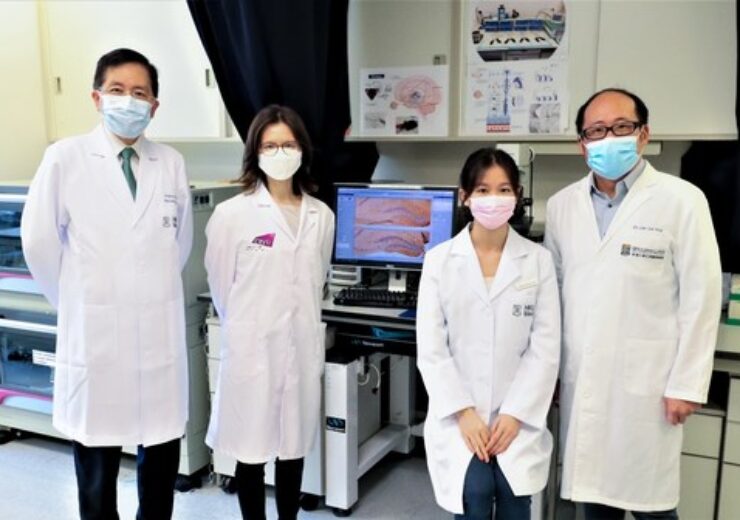Published in Brain Stimulation and Annals of the New York Academy of Sciences, the results showed antidepressant-like effects and reduced stress hormones in an animal model

(L-R) Prof. Chan Ying-Shing, Dr Leanne Chan Lai-Hang, PhD Student Yu Wing-Shan, and Dr Lim Lee Wei. (Credit: PRNewsfoto/ HKUMed)
A joint effort by scientists from The University of Hong Kong (HKUMed) and the City University of Hong Kong (CityU) has found the positive effects of electrical stimulation of the eye surface.
The team discovered that the stimulation can remove the depression-like symptoms and improve cognitive function in animal models.
In an animal model of depression, the scientists found that non-invasive stimulation of the corneal surface, which stimulates brain pathways, had impressive antidepressant-like effects and also decreased stress hormones.
The technique, dubbed transcorneal electrical stimulation, increased the expression of genes related to the growth and development of brain cells in the hippocampus.
In 2015, the principal investigator Dr Lim Lee Wei found that deep brain stimulation of the prefrontal cortex in the brains of animals could enhance memory function and alleviate depressive symptoms.
However, the technique was considered invasive and requires surgery to implant electrodes in the brain, which may cause side effects such as infections and post-operative complications.
Dr Lim Lee Wei, Dr Leanne Chan Lai-Hang, and Prof. Chan Ying-Shing were leading a group of Hong Kong researchers to find alternate approaches to neuropsychiatric illnesses treatment.
Yu Wing-Shan and other researchers investigated whether Alzheimer’s disease, a widespread form of dementia with no known treatment, can also be treated using this strategy in comparable trials.
The researchers discovered that the non-invasive stimulation significantly increased memory function in mice and decreased beta-amyloid deposits in the hippocampus, one of the symptoms of Alzheimer’s disease.
CityU lead researcher Dr Leanne Chan said: “Transcorneal electrical stimulation is a non-invasive method initially developed to treat eye diseases, and it would be a major scientific breakthrough if it could be applied to treat neuropsychiatric diseases.”
HKUMed professor Chan Ying-Shing said: “These research findings pave the way for new therapeutic opportunities to develop a novel treatment for patients suffering from treatment-resistant depression and dementia, nevertheless, clinical trials must be conducted to validate the efficacy and safety.”
The results were published in Brain Stimulation and Annals of the New York Academy of Sciences recently.
